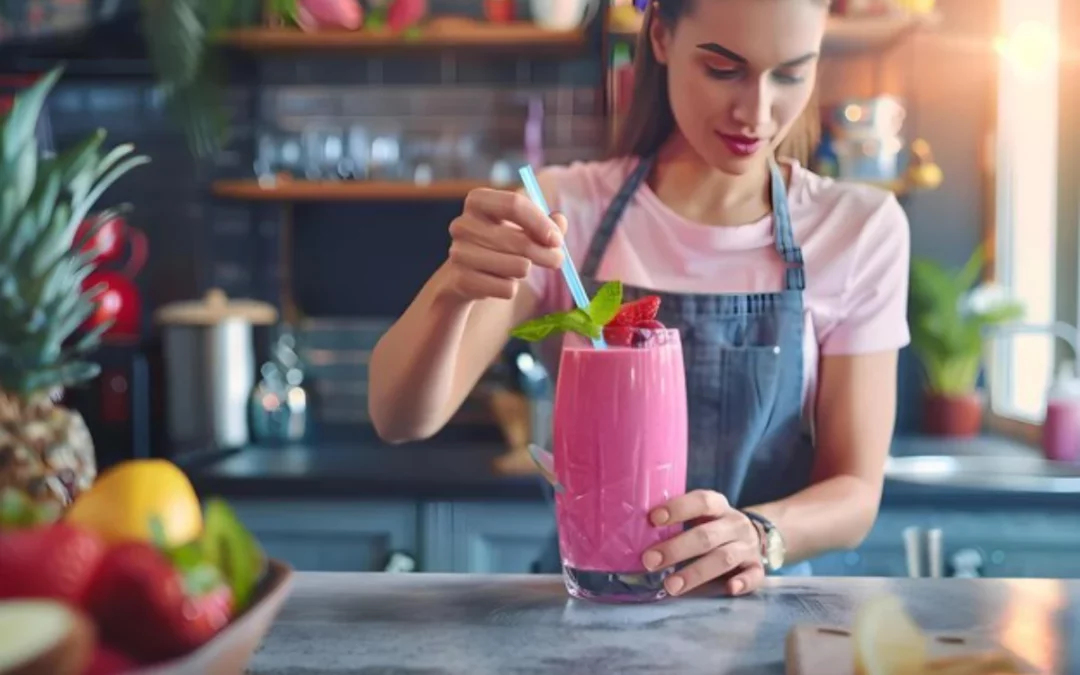Juice cleanse has surged in popularity as a quick fix for detox, weight loss, and a “reset” for the body. But what actually happens when you consume nothing but juice for several days? Is it a powerful health boost—or a risky shortcut?
In this article, we’ll break down the science behind juice cleanses, the short-term effects you might experience (both good and bad), and the long-term implications of replacing solid food with liquid nutrition.
What Is a Juice Cleanse?
A juice cleanse is a short-term dietary regimen where you consume only fruit and vegetable juices—often raw and cold-pressed—for a period ranging from 1 to 10 days. Many commercial juice cleanse programs promise to flush toxins from the body, improve digestion, boost immunity, and promote weight loss.
But what does science say? While some claims are rooted in nutritional truth, others are exaggerated or misleading.
Day-by-Day Breakdown: What Happens to Your Body?
Day 1: The Sugar Surge
Your body is used to solid food. On the first day, as you switch to juices—especially fruit-based ones—you experience a spike in blood sugar. Even natural sugars can trigger insulin fluctuations, leading to:
-
A burst of energy
-
Mild headaches
-
Increased urination
-
A slight crash by the end of the day
Day 2–3: Detox or Depletion?
This is often the hardest phase. As your glycogen stores begin to deplete, your body shifts into a mild catabolic state:
-
Fatigue sets in
-
You may feel irritable or foggy-headed
-
Some people experience nausea, dizziness, or digestive upset
-
However, some report a “light” feeling, reduced bloating, and even better sleep
Day 4–5: Adaptation and Ketosis
If your cleanse continues beyond three days, your body starts adjusting:
-
You may enter mild ketosis, burning fat for energy
-
Energy levels may stabilize (unless the calorie intake is too low)
-
Hunger often diminishes
-
Nutrient deficiencies can start to emerge, especially if the juice mix lacks diversity (e.g., no leafy greens, protein sources, or healthy fats)
The Pros of a Juice Cleanse
When done mindfully and for a limited time, a juice cleanse may offer several benefits:
✅ Increased Micronutrient Intake
Fresh juices can be nutrient-dense, particularly in vitamins A, C, and K, folate, and plant antioxidants.
✅ Hydration Boost
Juices contribute to overall hydration, especially if you’re including cucumber, celery, and watermelon-based blends.
✅ Short-Term Weight Loss
A caloric deficit is inevitable. While some of this is water weight, it can jumpstart a longer-term lifestyle change.
✅ Mental Reset
Eliminating processed foods—even temporarily—can help break habits, reduce cravings, and renew motivation.
The Cons and Risks You Should Know
Despite the hype, juice cleanses come with downsides—especially if prolonged or repeated often.
❌ Blood Sugar Spikes
Fruit-heavy juices can contain more sugar than a can of soda, spiking insulin and potentially stressing your pancreas.
❌ Lack of Protein and Fat
Protein is essential for muscle maintenance, enzyme function, and immune health. Most juice cleanses lack complete amino acids and healthy fats, leading to:
-
Muscle loss
-
Fatigue
-
Weakened immunity
❌ Gut Microbiome Disruption
Fiber plays a vital role in feeding beneficial gut bacteria. Juice removes nearly all insoluble fiber, which may disturb your gut flora balance.
❌ Metabolism Slowdown
A prolonged calorie deficit can slow down your metabolic rate, making it harder to sustain weight loss after the cleanse.
What About Detoxification?
One of the most widely touted claims of juice cleanses is “detox.” But the truth is: your body already has a highly effective detox system.
The liver, kidneys, lungs, and digestive system are constantly working to remove toxins. There’s no scientific evidence that juice cleanses “flush out” more toxins than these systems already do naturally.
However, reducing the load on your digestive system (by eliminating processed foods, alcohol, and excess sugar) can support these organs. That said, whole foods—especially fiber-rich ones—may do the job even better.
Who Should Avoid Juice Cleanse?
Juice cleanses are not recommended for:
-
Pregnant or breastfeeding women
-
People with diabetes or hypoglycemia
-
Those with kidney disease (due to high oxalate content)
-
Children and teenagers
-
Individuals with eating disorders or a history of disordered eating
Always consult a healthcare provider before starting a cleanse—especially if you have an underlying condition.
Tips for a Healthier Juice Cleanse (If You Still Want to Try It)
-
Limit it to 1–3 days max
-
Include mostly vegetables (spinach, kale, cucumber) and limit high-sugar fruits
-
Add fiber supplements or eat fiber-rich soups on the side
-
Drink plenty of water
-
Break the cleanse gradually by reintroducing light whole foods (soups, steamed veggies, oats)
The Bottom Line: Is It Worth It?
A short juice cleanse can serve as a psychological and dietary reset—but it’s not a miracle fix, nor a sustainable approach to health.
Rather than eliminating solid foods, a more balanced strategy is to incorporate more fresh juices alongside fiber-rich, whole-food meals. Focus on long-term lifestyle shifts instead of quick-fix detoxes.
Quick Summary
| Pros | Cons |
|---|---|
| Increased vitamins & antioxidants | Low in protein and fiber |
| Hydration and reduced cravings | Blood sugar fluctuations |
| Short-term weight loss | Muscle loss, fatigue |
| Possible mental reset | Not suitable for everyone |


